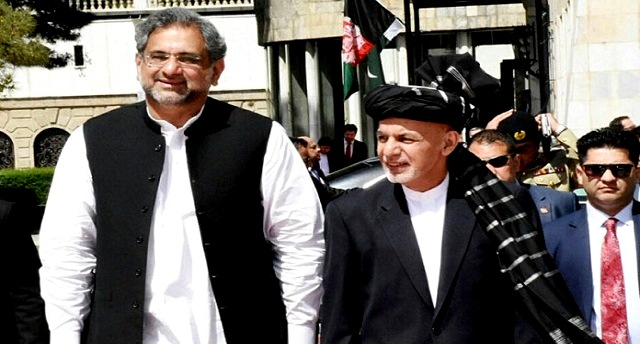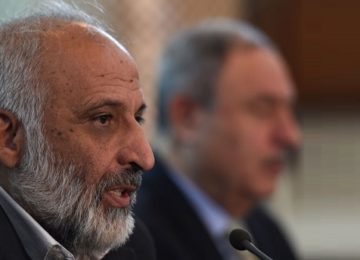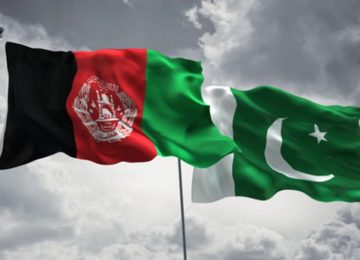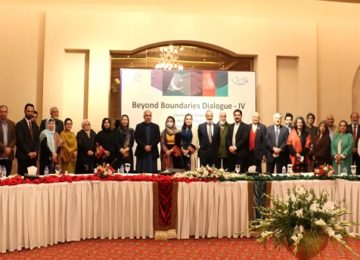ISLAMABAD: The Foreign Ministry on Sunday released details of a wide ranging agreement with neighboring Afghanistan on cooperation in key areas.
Prime Minister Shahid Khaqan Abbasi and Afghan President Ashraf Ghani reached the agreement in their talks in Afghan capital Kabul on Friday.
The ministry said Pakistan and Afghanistan agreed on key principles to operationalise the working groups under Afghanistan-Pakistan Action Plan for Peace and Solidarity (APAPPS), which is a joint action plan for cooperation in key areas of counter-terrorism, reduction of violence, promotion of peace and reconciliation, repatriation of refugees and joint economic development.
The ministry said that Pakistan and Afghanistan will “undertake effective actions against fugitives and the irreconcilable elements posing security threats to either of the two countries.” “Both countries commit to deny use of their respective territory by any country, network, group or individuals for anti-state activities against either country,” according to the new mechanism. Both will put in place a joint supervision, coordination and confirmation mechanism through Liaison Officers (LOs) for realization of the agreed actions. An official at the ministry told Xinhua that the LOs could be deployed in capital cities of Islamabad and Kabul and will share information if any armed opponents of the two countries would take possible actions against them.
Pakistan will support the Afghan-led and Afghan-owned peace and reconciliation for the political solution to the Afghan conflict, the ministry said.
The Prime Minister’s Office said Abbasi welcomed Ghani’s peace and reconciliation offer to the Taliban and both leaders called on the Taliban to respond positively to the peace offer and join the peace process without further delay. Both countries will establish working groups and ensure necessary cooperation mechanism as per the APAPPS for its full implementation and the mutually reinforcing principles.
Earlier the Prime Minister’s Office said the APAPPS provided a useful framework for broad based and structured engagement on all issues of mutual interest and decided to operationalize the five working groups under the APAPPS.
This piece originally appeared on The News International on April 9, 2018. Original link.
Disclaimer: Views expressed on this blog are not necessarily endorsed or supported by the Center for Research and Security Studies, Islamabad.








